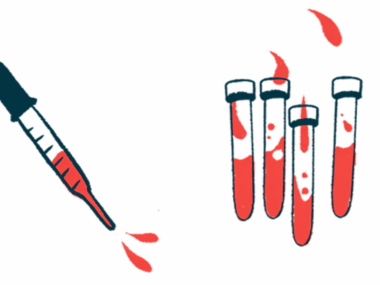Efanesoctocog alfa, now Altuvoct, approved for hemophilia A in EU
Once-weekly Altuvoct has potential to boost quality of life for patients
Written by |

Efanesoctocog alfa, a long-lasting factor VIII (FVIII) replacement therapy, has now been approved in the European Union for hemophilia A. It will be marketed under the brand name Altuvoct.
Altuvoct can be used as an on-demand treatment for bleeding episodes, a once-weekly prophylactic (preventive) therapy to reduce the frequency of bleeds, and a perioperative treatment to manage bleeds during surgery in people of all ages with hemophilia A of any degree of severity.
The European Commission granted Altuvoct marketing authorization to Sobi, the company responsible for developing and marketing the therapy in Europe and other markets. Last year, regulators in the U.S., Japan, and Taiwan approved the medication for similar indications under the brand name Altuviiio, which is marketed by Sanofi.
“Today’s announcement marks a major step forward in haemophilia care, offering the potential to significantly improve treatment outcomes and quality of life,” Lydia Abad-Franch, MD, Sobi’s chief medical officer, said in a company press release.
Altuvoct offers ‘simplified once-weekly dosing’
“For the first time, factor VIII activity levels can be sustained for a significant part of the week with simplified once-weekly dosing,” added Abad-Franch, who also serves as Sobi’s head of research, development, and medical affairs. “We are proud to work alongside the haemophilia community, as we lead the paradigm shift towards normal haemostasis and create new possibilities together.”
In hemophilia A, a deficiency in a clotting protein called FVIII impairs the blood’s ability to clot properly, placing patients at risk of excessive and prolonged bleeding.
Many standard FVIII replacement therapies, which work to provide patients with a version of the clotting factor they are missing, don’t last long in the bloodstream and must be administered every few days. In children with hemophilia, these therapies are typically cleared from the body faster than in adults, requiring multiple injections per week.
“Despite advancements, haemophilia still limits the possibilities of patients’ lives and this means there is still a need for treatments that offer elevated protection,” said Robert Klamroth, MD, PhD, head of the department of internal medicine, vascular medicine, and coagulation disorders at the Vivantes Klinikum Friedrichshain, in Germany.
As a prophylactic treatment, Altuvoct is given once a week as an injection into the bloodstream. Like other FVIII replacement therapies, Altuvoct works by providing patients with a lab-made version of FVIII. Unlike those therapies, however, the version of FVIII that’s in Altuvoct is fused to other proteins and protein fragments that help stabilize it and prevent it from being degraded, allowing it to remain active in the bloodstream for a longer period of time.
“ALTUVOCT’s high-sustained factor VIII activity and once-weekly dosing schedule have the potential to significantly improve quality of life for people with haemophilia A,” Klamroth said.
XTEND-1, XTEND-Kids data supported Altuvoct’s EU marketing authorization
Data from two Phase 3 clinical trials, XTEND-1 (NCT04161495) in adults and adolescents and XTEND-Kids (NCT04759131) in children, supported the therapy’s marketing authorization in Europe.
Top-line results from XTEND-1, which tested the treatment in 159 patients with severe hemophilia A, demonstrated Altuvoct’s ability to reduce annualized bleeding rates. Most patients had no recorded bleeds over one year of treatment, and 93% had fewer than three bleeds.
Among a subgroup of patients who received other prophylactic therapies in an earlier study, measures of life quality, joint health, and pain also favored Altuvoct over previous treatments.
In XTEND-Kids, 74 boys younger than 12 with severe hemophilia A, who had previously been treated with other FVIII therapies, received once-weekly prophylactic treatment with Altuvoct for one year. Nearly two-thirds of the children were free of bleeds that required treatment, and half had no bleeds at all during the study. None of the patients developed inhibitors, or neutralizing antibodies, against the therapy.
“The trials demonstrated substantial improvements in the prevention and treatment of bleeds along with significant improvements in physical health, pain, and joint health,” Klamroth said.
Evaluation of Altuvoct’s long-term safety is underway in a Phase 3 extension study called XTEND-ed (NCT04644575). This study includes patients who participated in XTEND-1, XTEND-Kids, or any other Altuvoct study. It will also include severe hemophilia A patients newly started on Altuviiio in China and those newly started on the treatment for surgical reasons.
The European Commission also endorsed a recommendation by the European Medicines Agency that supported the therapy’s orphan drug designation, granting Sofi 10 years of market exclusivity. The agency had noted that once-weekly prophylactic treatment with Altuvoct led to significantly fewer bleeds per year when compared with other factor VIII products, constituting “a clinically relevant advantage.”




